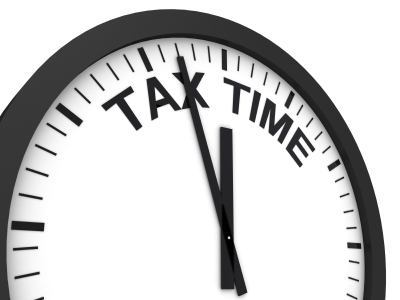Have you ever felt the need to get your hands on the person who came up with the concept of income tax in the first place? Have you wondered how long ago it started? Do you know what is common between cooking oil, booty of war, foreigners, and the process of rain?
Read on to find out. Don’t blame us if, at the end, you’ll start appreciating the need for the taxation system and even start liking it!
The roots of taxation system
The word ‘tax’ derives from the Latin word ‘taxare’, which means ‘to assess’. The roots of the tax system dates back to the Egyptian Pharaohs and Roman Republicans. The Pharaohs held ‘scribes’ responsible for raising funds by any means possible; the scribes in turn started levying tax on household cooking oil.
The city-states of Ancient Greece also collected ‘eishpora’for wars but refunded the surplus if any. Athens had a monthly poll tax on foreigners. Imperial Rome extracted tax from colonized people and Julius Caesar was known for his efficient tax strategies. Different religions practiced different taxation methods. While the ‘tithe’ of Christians taxed laypersons in England and Wales one-tenth of their personal income and moveable property, the ‘khums’ of Islam mandated Muslim armies to pay one-fifth of their spoils of war to the Caliph or Sultan.
India too is known for its taxation systems right from the days of Chandragupta Maurya. The ‘jizya’ collected by the Islamic rulers during the 11th century was also one of the earliest taxes in India. Kalidasa, the ancient Indian poet, put it dramatically while describing the taxation system: “Just like the sun draws moisture from the Earth to give it back as rain, a kingdom collects tax and for the good of the common man.”
Inception of the Modern Taxation System
The modern taxation system was initiated in Europe when taxes on inter-city trade were established. The military control of the UK across Asia and Africa assured them a regular flow of taxes. The French Revolution in 1789 and 1799 took place because of resentment of tax. The formation of United States stems from revolt against the tax imposition of the Imperial British.
With the rise of capitalism and industrial revolution, the British came up with Income Tax imposed on personal wealth. The Income Tax Act of 1842, introduced by Sir Robert Peel renewed the British taxation system. But the system went through a series of transformations as few favored it. Over a period of time, tax rates continued to increase.
During World War I, the standard rate of 6% tax was increased to 30%. During the Second World War, with the entry of the US, the Federal Government brought in considerable changes in the taxation policy which was widely accepted.
India and Income Tax
The history of Indian Income Tax can be traced back to the colonial days in the 19th century. The Income-tax Act was first introduced in India in the year 1860. The architect of Income Tax in India was James Wilson who was British-India’s first Finance Minister. The tax system levied on the Indians then was modeled largely on the lines of the British system prevailing at that time.
Income in those days was classified under four schedules namely:
- Income from landed property;
- Income from professions and trade;
- Income from securities; and
- Income from salaries and pensions
Post independence, a new Act catering for the needs of Income Tax and revenue generation for the Government was needed. The Government henceforth introduced a new act titled `Income-tax Act, 1961′ which came into effect from April 1, 1962. This became the backbone of the modern taxation in India. Many tax-related laws and amendments have been made to the original Income Tax Act with the introduction of various direct and indirect taxes.
Significance of Income Tax
The objective of the taxation structure is not only to raise revenue for the development of the state and society, but also to act as a yardstick in controlling the macro and micro economic dynamics. Price of goods, for example, is largely determined by the taxation structure. From Sales Tax to Income Tax and Wealth Tax, the taxation bouquet has various dedicated branches, each catering to a specific segment.
Various tax policies are framed in such a way that honest taxpayers feel the pride by paying a certain amount of Income Tax towards the welfare of the state and any tax evaders are to be dealt with sternly.
It is common to dislike the concept of tax and the hefty paperwork associated with it. But, remember: “The best measure of a man’s honesty is in his income tax returns.” In any case, you are lucky – in today’s world, you are not dismembered and fed to lions if you don’t pay your taxes in time!
